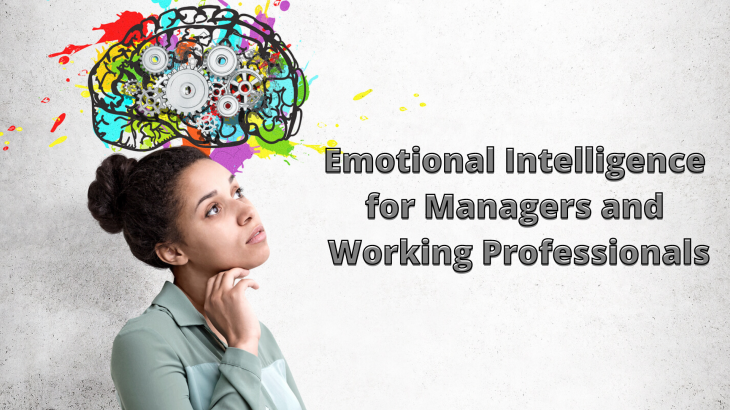What is Emotional Intelligence and Emotional Quotient
We often hear the term Emotional Intelligence and Emotional Quotient or EQ being necessary for managers and working professionals to succeed in their careers. If we investigate what this term means, we find that it broadly refers to the emotional capacities of managers and working professionals when they discharge their work. This means that for professionals to succeed, they would not only need insights, intelligence, and hard work but also must possess emotional abilities related to empathy, understanding, and a sense of being guided by an inner voice.
In other words, there are three components of EQ as defined by the famous psychologist, Daniel Goldman and they are the capacity to relate to colleagues, superiors, and subordinates at an emotional level; the ability to defer gratification in the pursuit of professional and personal objectives; and having an anchor within oneself or having an inner rudder through which the decision making can be made. We shall discuss each of these traits in detail subsequently. It would suffice to state here that being an emotionally aware person is one of the key traits that are needed for professional success in the 21st century workplace.
Deferring Gratification and Empathizing with Co-workers
The first trait or the ability to empathize with fellow employees means that instead of just being cold and aloof at the workplace, it would help managers and professionals to relate to their co-workers and ensure that instead of just giving or taking orders, they are able to bond with them and understand and empathize with their situation. The second trait of deferring gratification relates to the need for putting professional and personal objectives ahead of indulging in pleasurable activities. In other words, if a person can delay gratification and instead, focus on his or her work without distractions, then there is a lot that the person can achieve at work. The ability to delay gratification also means that the individual is able to ensure that work is done before everything else though this does not mean that work is everything to the detriment of other objectives. The point here is that working professionals must prioritize their career objectives and personal goals and ration the time available to get work done and indulge in leisure activities. For instance, if an individual can get the task done without wasting time on pleasurable activities and at the same time, ensure that his or her personal life does not suffer, then the person is known to have a high EQ.
Having an Inner Rudder
The third trait is perhaps the most important one for managers and working professionals. This refers to the aspect of being guided by an inner rudder, which means that one must have an anchor within through which one makes decisions regarding ethics, work, and personal lives. Considering the fact that in recent years, the corporate world has been shaken to the core by a series of scandals related to unethical behavior, this trait is very important for moral based decision-making. As most of the unethical behavior was mainly because the individuals did not heed their inner conscience and followed the herd as far as being unethical was concerned means that having an inner rudder or a moral compass is of critical and crucial importance. Having an inner rudder would also help in actualizing visionary decision making and take decision related to work and personal lives that are based on deep insights and a careful thinking through of the consequences and the merits of such decisions. In our opinion, all the three traits are important but this trait in particular is a key aspect of decision making in the 21st century.





